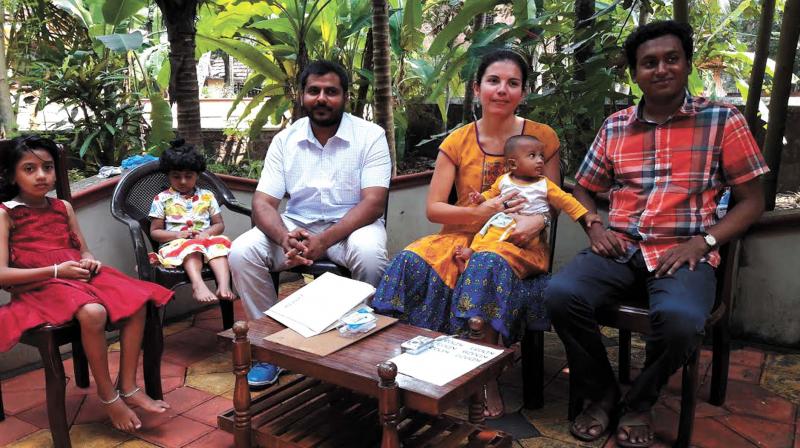Scientists to unravel mystery of high twinning rate in Kodinhi

MALAPPURAM: The mystery behind the genetics of high twinning rate in Kodinhi, one of the rare villages in the world with a large number of twins and their generations, will be unravelled soon. A consortium of Indian and foreign scientists have embarked on an international research project to identify the genetic factors determining the heritability of twins. The team has been conducting a study in four villages in India, Vietnam, Brazil and Nigeria which have the highest twinning rate in the world.
A 12-member team led by Dr Thirumalaisamy Velavan have visited families of twins in Kodinhi in the district on Tuesday as part of the study. “There is no genetic link identified yet for identical twinning and the exact phenomenon behind the huge twin population in specific areas is yet to be ascertained,” said Dr Velavan, the principal investigator and an associate professor at Tubingen University, Germany.
The multi-institutional study which may last for a couple of years include scientists from University College London, Institute of Tropical Medicine at Tubingen University, Germany, CSIR-Centre for Cellular and Molecular Biology, Hyderabad and Kerala University of Fisheries and Oceanic Studies (KUFOS), Kochi. KUFOS is the coordinating agency in India.
The research puts a premium on how the genetic factors are being transmitted to generations in certain families in this specific communes which have highest twinning rates. “The four selected communities from different continents report an unusually large number of twin births. They are Hung Hiep in South Vietnam, Igbo-Ora in Nigeria, Candido Godoi in Brazil, besides Kodinhi in India. Interestingly the number of twin births are on the rise in Kodinhi as compared to other three communities,” said Dr Velavan.
One of the scientists in the team, Dr Sreeja Lakshmi, a postdoctoral fellow at Tubingen who hails from Manjeri in the district said the unveiling genetic basis of the high twinning rates of Kodinhi would be an interesting additive to the genetics of population studies in India. The study would lay a basis to understand the underlying genetic and epigenetic factors that may hold key answers for the high twinning rate in Kodinhi,” said Dr Punnadath Preetham, another team member and assistant professor at KUFOS.

